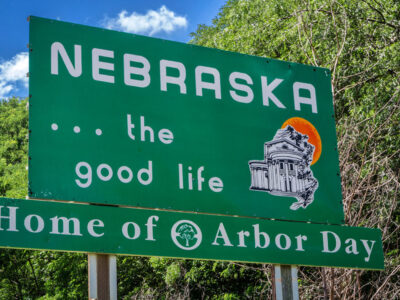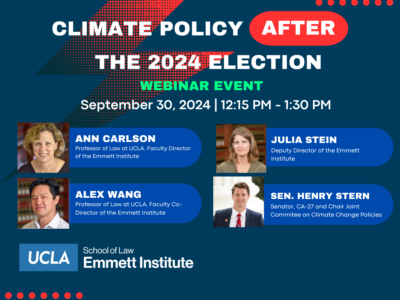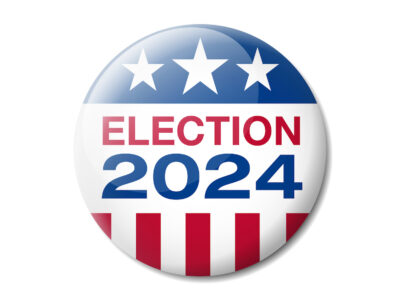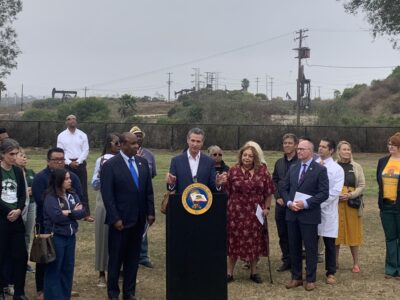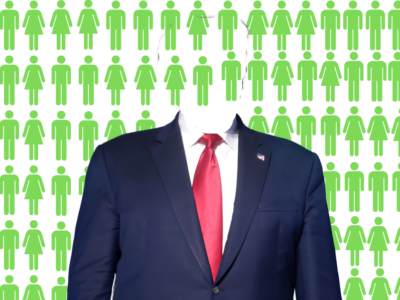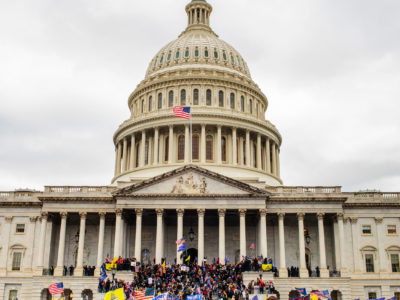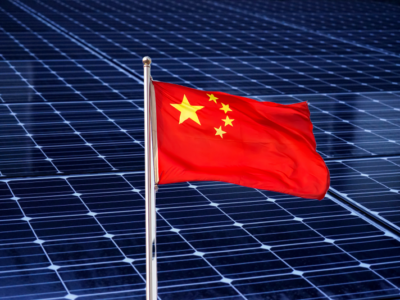The Walz-Vance Debate and Environmental Policy
After Hurricane Helene, Vance and Walz were pressed on climate change during the VP debate. Here’s everything they said on energy and the environment.
The subject of climate-fueled disasters figured prominently in the vice presidential debate. The CBS News moderators asked a question about climate change within the first few minutes, although the multi-faceted answers weren’t always factual and much of the post-debate discussion in newsrooms and spin room interviews centered on contentious yet civil exchanges on immigration and democracy. Moderator Norah O’Donnell first posed the climate question this way: �...
CONTINUE READINGClimate Politics and Policy in Nebraska
In a divided nation, could the Cornhusker State turn out to hold the balance of power?
When Nebraska’s in the national news, it's usually because of its football team or its most prominent resident, Warren Buffett. Lately, however, it’s been featured in the national political news due to Trump’s unsuccessful effort to get the state to abandon its practice of giving one electoral vote to each congressional district. In a tight presidential race, Omaha’s one electoral vote could really matter. And now it’s getting some attention because of a Senate...
CONTINUE READINGClimate Policy After the 2024 Election
In this UCLA Emmett Institute webinar, panelists discussed the climate implications of the 2024 election from the state, national, and international perspective.
https://youtu.be/sE7jxRUtu14?si=nrYSvS7EMu7rMLT0&t=51 Climate certainty. Legislative action. Whipsaw regulations. An exodus of civil servants. Chinese leadership despite being the world’s largest emitter. Those are a few of the possible outcomes of the Nov. 5 presidential election, according to our panelists. More than in any previous election, the two major candidates’ track records on environmental policies are well-established and diametrically opposed...
CONTINUE READINGEvolving Energy Positions, 2016-2024
The national debate over climate and energy has shifted since Trump’s first run in 2016.
Over the past three presidential elections, the battle lines over energy and climate policy have shifted. Coal, once a political flash point, has almost disappeared as an issue, with oil and gas production in unchallenged first place for Republicans. Clean energy subsidies, a side-issue in 2016, have now taken center stage, while EPA regulations get much less attention. The one thing that remains unchanged is the gulf between the parties. The Eclipse of Coal in Favo...
CONTINUE READINGGovernor Newsom Should Veto These Four Bills
Four seemingly modest bills — AB 1122, AB 1296, AB 637 and AB 3179 — are sneaky legislative efforts to threaten California’s world-leading clean transportation investments.
This post was co-authored by Ruben Aronin, Principal of the Better World Group. With just weeks to go before November 5, all eyes are on the election, including what it means for environmental policy. And yet, one of the largest threats to California’s clean transportation leadership in recent history has materialized right under our noses — and it’s coming from our own legislature. Our elected leaders understand that California’s transition to a clean en...
CONTINUE READINGThe Contract with America
Or, as some critics called it, “the Contract ON America.”
Tomorrow is the thirtieth anniversary of the Contract with America. On September 27, 1994, more than 300 Republican congressional candidates stood outside the Capitol to sign the Contract. In retrospect, this was an important step toward the divisive politics of the Trump era. The Contract was a list of promises about what Republicans would do if they won the House. A key plank tied deregulation and tax breaks for business to worker welfare. After they took control...
CONTINUE READINGNew Law Reaffirms Local Authority to Ban Oil Drilling
AB 3233, part of a trio of bills that the governor just signed, paves a clear path for local phase-out efforts.
This morning, Governor Newsom signed a trio of bills—AB 3233 (Addis), AB 1866 (Hart), and AB 2716 (Bryan)—that will protect communities in Los Angeles and across the state from the harms of oil and gas production, the impacts of which are disproportionately experienced in low-income communities of color across the state. He signed the package on a Los Angeles soccer field that overlooks oil wells, joined by community organizers who have led the charge for years. ...
CONTINUE READING‘Schedule F’ Would Be Bad—Even for Trump
My time in the Biden administration shows that Project 2025’s proposal to purge civil servants would be bad policy for everyone.
Here’s one of the best kept secrets of the federal government: nothing gets done without effective civil servants. I learned this secret firsthand in the three years I just spent at the National Highway Traffic Safety Administration (NHTSA), first as Chief Counsel, then as Acting Administrator. Political appointees, as I was, help set an agency’s agenda, but we can’t carry it out without the expertise, talent, professionalism, and dedication of career emplo...
CONTINUE READINGThe Battle for Congress: Key U.S. House Races in California
These elections could prove critically important to how much the next President can reshape energy and environmental policy.
The battle for control of the U.S. House is going to be very tight. Democrats need to pick up only four seats to flip control – something that will be especially important for them if Trump wins and Republicans win the Senate as expected. Especially in that scenario, control of the House will have a big impact on climate and energy policy, one way or the other. The consensus among political observers is that there are six toss-up races in California. Here are ...
CONTINUE READINGUnderstanding China’s National Energy Security Strategy
How should the US compete with Chinese green development?
China’s dominance in clean technologies (solar, wind, electric vehicles, batteries) has been in the news recently (see, e.g., here and here). China accounts for more than 80% of global manufacturing capacity for solar products and batteries. Chinese companies produce 65% of EVs globally. The US has responded to this both with measures to improve US competitiveness, such as the Inflation Reduction Act and the Bipartisan Infrastructure Law, as well as through efforts to ...
CONTINUE READING




